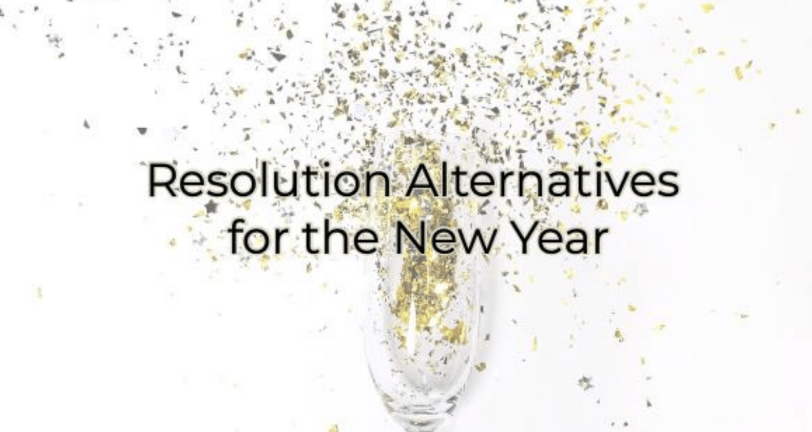Resolution Alternatives for the New Year

This could be the shortest article in the world if I merely answered the question in the title with the word no. And truthfully, that is the answer. However, there's more to it than that. First, the word resolution is used more often for personal growth than professional. That's why so many people have adopted a word of the year instead. Still, the beginning of a new year is ripe with potential, and it seems irresponsible not to harness that and apply it to your business.
Resolution Alternatives for the New Year
When J .R.R . Tolkien wrote, “Not all who wander are lost ”, he wasn't talking about business professionals. If you want to grow your business and succeed you need a goal/destination and a road map of how you'll get there. Some people do this by setting resolutions. But that term is associated with excuse and lackluster performance.
So, we have some alternatives to setting resolutions that you may find more successful and empowering.
- Word of the Year. Choose a single guiding word to help you make decisions throughout the year. The concept ensures singular focus and gives you a litmus test for making decisions. For instance, if your word is growth, when an opportunity presents itself and you must decide whether it’s something you want to pursue or not, you will ask, “ is this project aligned with growth? ” If it is, you'll proceed. If it isn't, you'll move on.
- Monthly (or quarterly) Goals. Most people have two problems when it comes to setting goals. The first is that they take on too much and don't accomplish anything. The second is that they have an entire year to reach their goal, so they often don't think about that goal until the fourth quarter. In stead, set small goals for each month in the year. For 30 days (or 120 if you opt to do this quarterly) focus on attaining that one goal. It can be personal or professional. You could do one of each. Time is less likely to get away from you in a month than it will when you set a goal for 365 days. Plus, doing something for 30 days is long enough to establish a habit. Ideally, whatever you've done for that month will just become part of your routine as you begin your next goal.
- Learning Journeys. Make a list of skills or areas of development you want to concentrate on this year as part of a learning journey. Then make a list of how you will acquire these new skills by attending workshops, reading books, taking online courses, or attending conferences. Schedule these immediately or create deadlines for attaining them. Make these goals specific. For example, “I will learn French” is not specific enough. Is your goal to be fluent or just order off a menu? Instead, make a learning goal of something more specific like “I will learn French so I can make polite conversation at the registration table when I attend the conference in Paris in October.”
- Mini Networking Resolutions. Focus on expanding your professional network and building meaningful connections. Commit to attending one event, reaching out to someone new on LinkedIn, spending 15 minutes every day contributing on a Facebook group, or simply committing to commenting on posts of five followers each day. You can easily incorporate these mini networking goals in between your standard daily tasks.
- Establish Mindfulness Practices. Incorporate mindfulness practices into your daily routine to enhance focus, reduce stress, think more creatively, and improve overall well - being. Meditation, deep breathing exercises, positive affirmations, or regular walks in nature, can positively impact your personal and professional life. If you seem to have a problem finding the time for mindfulness practices, try habit stacking. Habit stacking is involves performing an activity during another activity that is already a habit. For instance, you might repeat positive affirmations in your mind as you brush your teeth. Brushing your teeth is already a daily habit. Adding affirmations while doing so will ensure you spend at least 4 minutes a day on establishing this new habit.
- Delegate and Collaborate. Make a list of your strengths and weaknesses. Make a second list of what you currently do in your job . Then compare your daily job activities to your strengths and weaknesses list. Are there any activities you do that are not in your wheelhouse but might fit others in your organization better? Empower them to contribute their expertise in that area(s) .
- Gratitude Journaling. Start a gratitude journal to reflect on positive aspects of your personal and professional life. Journaling doesn’t take hours. A gratitude journal entry could be just three bullet points of things you are grateful for that day. It could also contain compliments you receive professionally. Review your gratitude journal periodically to remind yourself of the positive things that happened this year. Focusing on gratitude improve s your mindset and enhances resilience.
